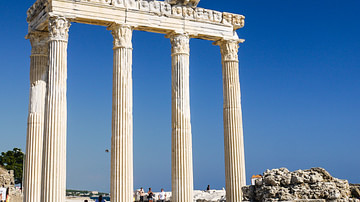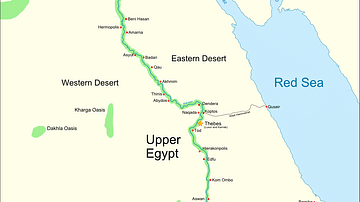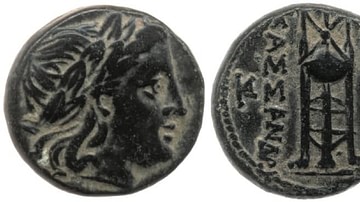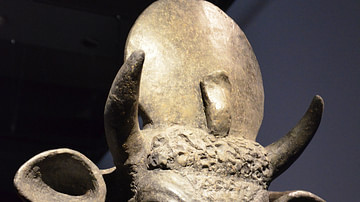Search
Search Results

Definition
Lysimachus
Lysimachus (c. 361-281 BCE) was one of Alexander the Great's trusted bodyguards and a member of his Companion Cavalry. Although he obtained Macedonian citizenship, his father was a Thessalian named Agathocles. After the death of Alexander...

Article
Conflict & Celts: The Creation of Ancient Galatia
Galatia was the most long-lasting and powerful Celtic settlement outside of Europe. It was the only kingdom of note to be forged during the Celtic invasions of the Mediterranean in the 4th and 3rd centuries BCE. From its foundation, Galatia...

Article
Astronomy in the Scientific Revolution
The astronomers of the Scientific Revolution rejected long-held theories of ancient thinkers like Claudius Ptolemy and Aristotle and instead set out to systematically observe the heavens in order to create a model of the universe that fit...

Definition
Side
Side (pronounced see-day) was a city on the southern coast of Cilicia (modern-day Turkey) first settled in the 7th century BCE by immigrants from Cyme, an Aeolian municipality to the north near the kingdom of Lydia. Its name means 'pomegranate'...

Definition
Caesarion
Ptolemy XV Caesar “Theos Philopator Philometor” (“the Father-loving Mother-loving God”) (c. 47-30 BCE), better known by his unofficial nickname Caesarion or “Little Caesar” in Greek, was the oldest son of Cleopatra VII (69-30 BCE) and was...

Definition
Dodekaschoinos
The Dodekaschoinos (literally "Twelve Cities" in Greek) was the name of a region in Lower Nubia that became an important province of the Ptolemaic Kingdom after it was annexed from Meroitic Nubia by the Egyptian kingdom. The area fell under...

Definition
Cassander
Cassander (c. 355-297 BCE, r. 305-297 BCE) was self-proclaimed king of Macedon during the political turmoil following Alexander's death. Born in Greece as the son of Antipater, the regent of Macedon and Greece in the absence of Alexander...

Definition
Alexander Helios
Alexander Helios (40 BCE – c. late 1st century BCE) was a member of the Ptolemaic dynasty, the second oldest son of Cleopatra VII (69 BCE – 30 BCE) and the twin brother of Cleopatra Selene II (40 BCE – 5 BCE). He spent the majority of his...

Definition
Ergamenes
King Ergamenes (also known as King Arkamani I, r. 295-275 BCE) was the greatest king of the city of Meroe, Kingdom of Kush (located in modern-day Sudan) who broke free from Egyptian dominance to help direct a wholly distinct culture. The...

Definition
Apis
Apis was the most important and highly regarded bull deity of ancient Egypt. His original name in Egyptian was Api, Hapi, or Hep; Apis is the Greek name. He is not, however, associated with the god Hapi/Hep who was linked to the inundation...